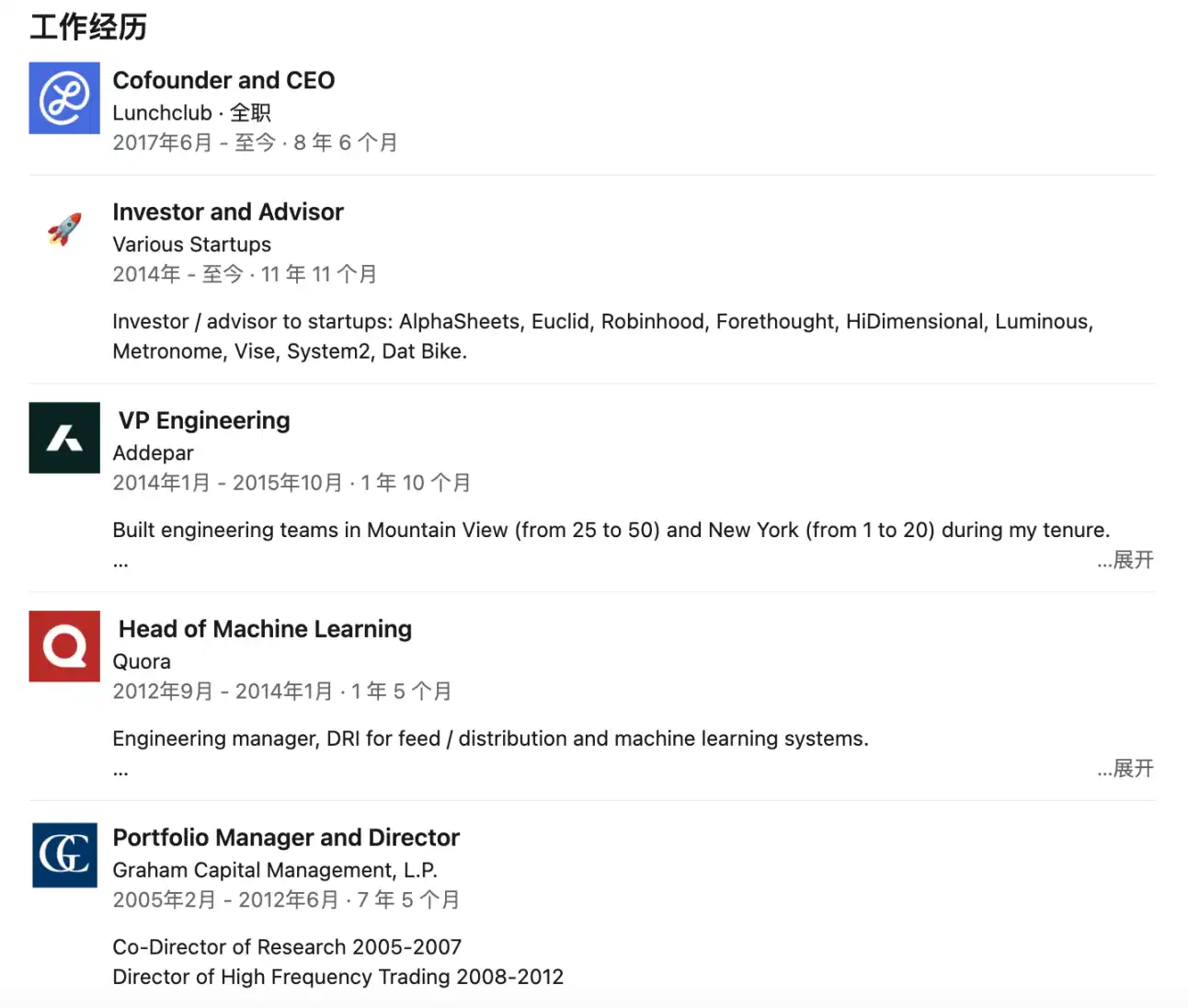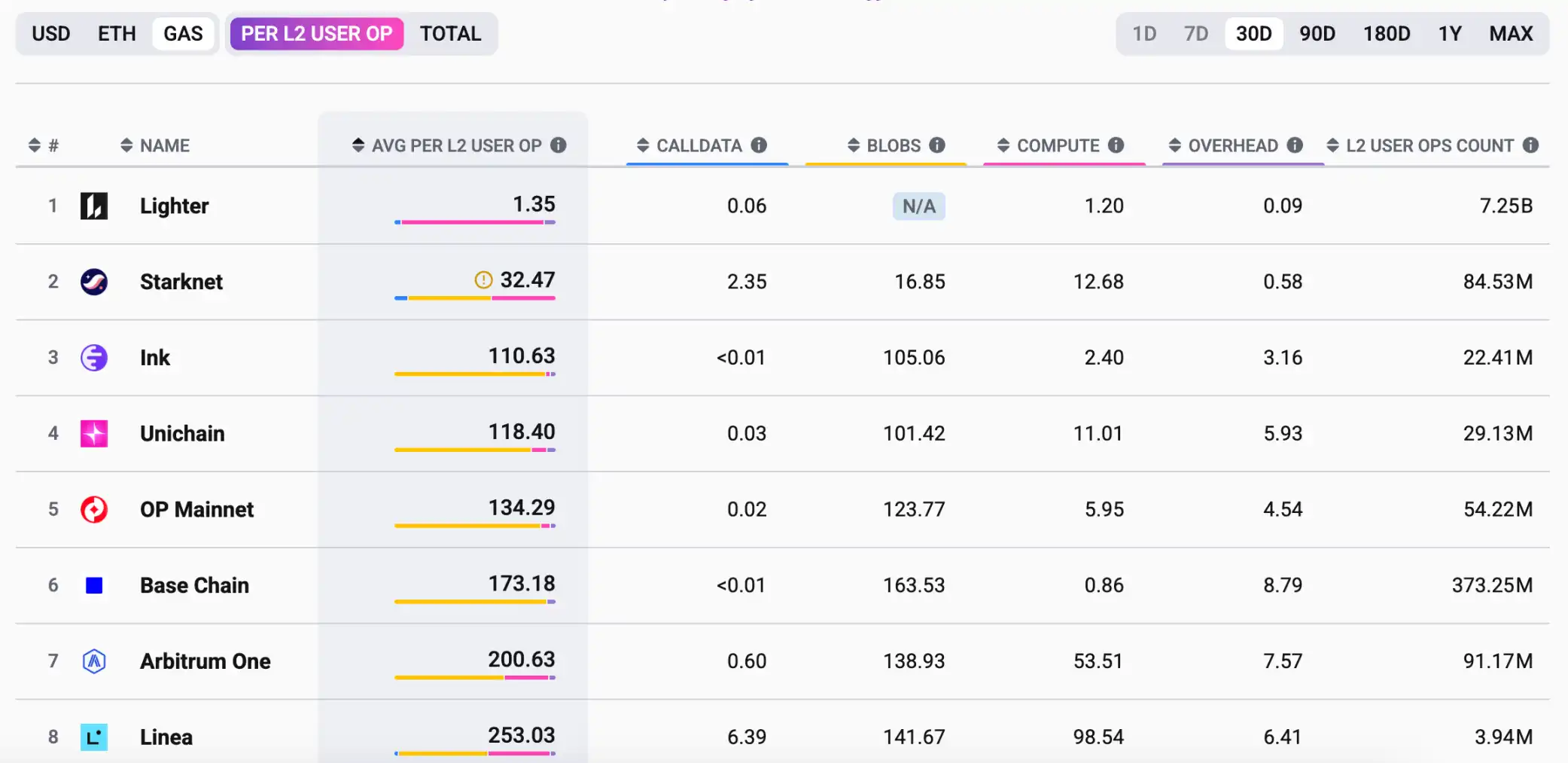Robinhood makes a rare bet: Lighter and its genius founder
Aster has aligned itself with Binance, while Lighter has chosen to embrace capital investment.
Original Title: "Robinhood's Rare Bet, Lighter and Its Genius Founder"
Original Author: Eric, Foresight News
Perp DEX has undoubtedly been one of the hottest topics in recent months. After HyperLiquid broke out of the circle, leading projects have each showcased their strengths. HyperLiquid shone brilliantly without any fundraising thanks to the team's operational capabilities, Aster quickly seized the market by leveraging Binance's influence, while Lighter chose to embrace capital.
On November 11, Fortune magazine reported Lighter's latest $68 million funding round, with an impressive lineup of investors, including Founders Fund, Ribbit Capital, and Haun Ventures. Even Robinhood, the celebrity brokerage that rarely invests, couldn't resist voting with its feet.
Besides the fundraising, the report also revealed the untold story behind Lighter.
From Trading to AI and Back to Trading
Lighter's founder Vladimir Novakovski demonstrates a profound truth: even geniuses need to focus on fields they are familiar with. Unlike many entrepreneurs who have shifted from Web3 to AI, Vlad chose to go against the tide.
Vlad immigrated from Russia to the United States as a child. At an age when most were still memorizing quadratic formulae, he was selected for the U.S. national team to participate in the International Olympiad in Informatics and Physics. At 16, Vlad entered Harvard University and graduated early after three years. At 18, he was personally invited to join Citadel, one of the world's largest hedge funds and market makers, by CEO Ken Griffin.

After nearly 15 years of experience as an engineer and trader, in 2017, Vlad co-founded the AI social networking platform Lunchclub with Scott Wu, whom he worked with at investment firm Addepar.
Lunchclub raised about $30 million in funding. During the early days of the pandemic, its product attracted a large number of users eager to make new friends. But by 2022, growth had stalled. "At that time, we had three options: first, try to make it profitable but on a smaller scale; second, try to develop it into a platform like TikTok or Snapchat, but neither seemed feasible," Vlad said. "The third option: pivot to something we were truly interested in."
That year, the two founders parted ways. Wu left Lunchclub and founded the AI coding company Cognition, which is now valued at over $10 billion. Vlad, who stayed at Lunchclub, decided to lead the company in a new direction—trading, his area of expertise. After the pivot, Lunchclub became Lighter. Vlad retained 80% of the original team and completed a $21 million funding round in 2024, led by Haun Ventures and Craft Ventures, with Dragonfly and Robot Ventures also participating. However, this funding was not made public at the time.

In fact, Lighter did not initially target the perp DEX direction. When it launched at the end of 2022, Lighter was a spot DEX on Arbitrum. It only began pivoting to perp DEX in 2023 and started developing its own ZK Rollup, with the mainnet officially launching in October this year. Yet, in just over a month since launch, Lighter has already become the fourth largest L2 by TVL, second only to Arbitrum One, Base, and OP Mainnet. Even OG Blue Fox marveled at how a customized L2 could outpace general-purpose L2s.

What kind of ZK L2 is Lighter?
When OP Rollup was dominant, many visionary industry insiders pointed out that "ZK is the End Game." Today, from Brevis to ZKsync Airbender, we finally understand the meaning of this statement, and clearly, Vlad saw it all coming.
As a founder with both engineering and trading experience, Vlad's L2 is almost tailor-made for DEXs.
Simply put, Lighter integrates all core logic—matching, clearing, risk control—into a custom SNARK circuit, and batches the final state to anchor on Ethereum L1. In other words, Lighter's L2 design writes "exchange logic" into the ZKP circuit, with all designs focused on faster trade execution and verification. Even Lighter's sequencer only has "sequencing rights"; the matching logic is hardcoded into the circuit, so the sequencer cannot pick or insert orders.
Lighter calls this architecture "Lighter Core." According to its documentation, "Lighter Core's scalability benefits from its newly developed proof engine, which was built from scratch specifically for exchange workloads. It leverages new algorithms and optimized data structures to efficiently generate proofs for exchange operations. All exchange operations are deterministically executed via user-signed transactions. A batch of such transactions produces a new post-execution state and a succinct cryptographic proof."
In my article "ZKsync Praised by Vitalik May Really Be Undervalued," I explained the advantages of ZK in verification. In theory, once a transaction is ZKP-verified, finality is achieved, and submitting it to Ethereum L1 becomes a procedural matter. To generate simple proofs, Lighter increases the complexity of the proof process itself but optimizes trading speed.
Additionally, Lighter's zero-fee trading for retail users is also a much-discussed feature in the market. Lighter hasn't specifically explained why it doesn't charge fees, but from its mechanism design and Robinhood's investment, we can make some educated guesses.
According to Lighter's documentation, the protocol does not charge fees to retail traders, but the latency for takers and makers is 300 milliseconds and 200 milliseconds, respectively. For advanced accounts targeting market makers and high-frequency traders, a fee of 0.002% for makers and 0.02% for takers is charged, but their latency is 0 and 150 milliseconds, respectively. I suspect that the design of free but high-latency trading for less price-sensitive retail traders may be modeled after Robinhood's Payment for Order Flow (PFOF) mechanism, with the fees charged to advanced accounts being equivalent to Robinhood's commissions from market makers.

In this way, retail traders remain highly active, advanced accounts profit from high-frequency trading, and Lighter only needs to charge fees to advanced accounts to provide a better user experience while collecting considerable fees from market makers. This mutual benefit not only increases trading volume but also significantly reduces gas fees.
As an aside, the second season of Lighter's points program is currently underway, with corresponding points policies for both retail traders and market makers. For retail users, there is a weekly total of 200,000 points, which are calculated based on users' trading volume, open contracts, profits, etc., and distributed every Friday. Given that Fortune's report mentioned that the fundraising also involved token warrants, Lighter's points are likely to be an important consideration for future airdrops.
Even Geniuses Can't Do It All
Entering Harvard at 16, completing all courses in three years, and being personally recruited by Citadel's CEO—such a legendary story actually happened to Lighter's founder Vladimir Novakovski. But even someone as strong as Vlad failed in his AI social startup venture.
With his engineering and trading talents, Vlad entered Web3 through Lighter, attracting a queue of profit-seeking capital. Joey Krug, partner at Founders Fund, said that Vlad and his team accounted for 85% to 90% of the investment decision.

According to DefiLlama data, Lighter's recent trading volume has climbed to the top. Although, due to zero fees, we cannot rule out the presence of airdrop hunters. Interestingly, what was thought to be the final chapter of the perp DEX endgame written by HyperLiquid may actually be just the beginning.
Disclaimer: The content of this article solely reflects the author's opinion and does not represent the platform in any capacity. This article is not intended to serve as a reference for making investment decisions.
You may also like
Hit to Earn? A Look at 8 Popular Recent Token Launch Projects
The crypto industry is experiencing a wave of mergers and acquisitions: giants are bottom-fishing, and the Web3 ecosystem is being restructured.
While small projects are still struggling for their next round of funding and token launches, industry giants are already using cash to buy time and acquisitions to secure their future.

